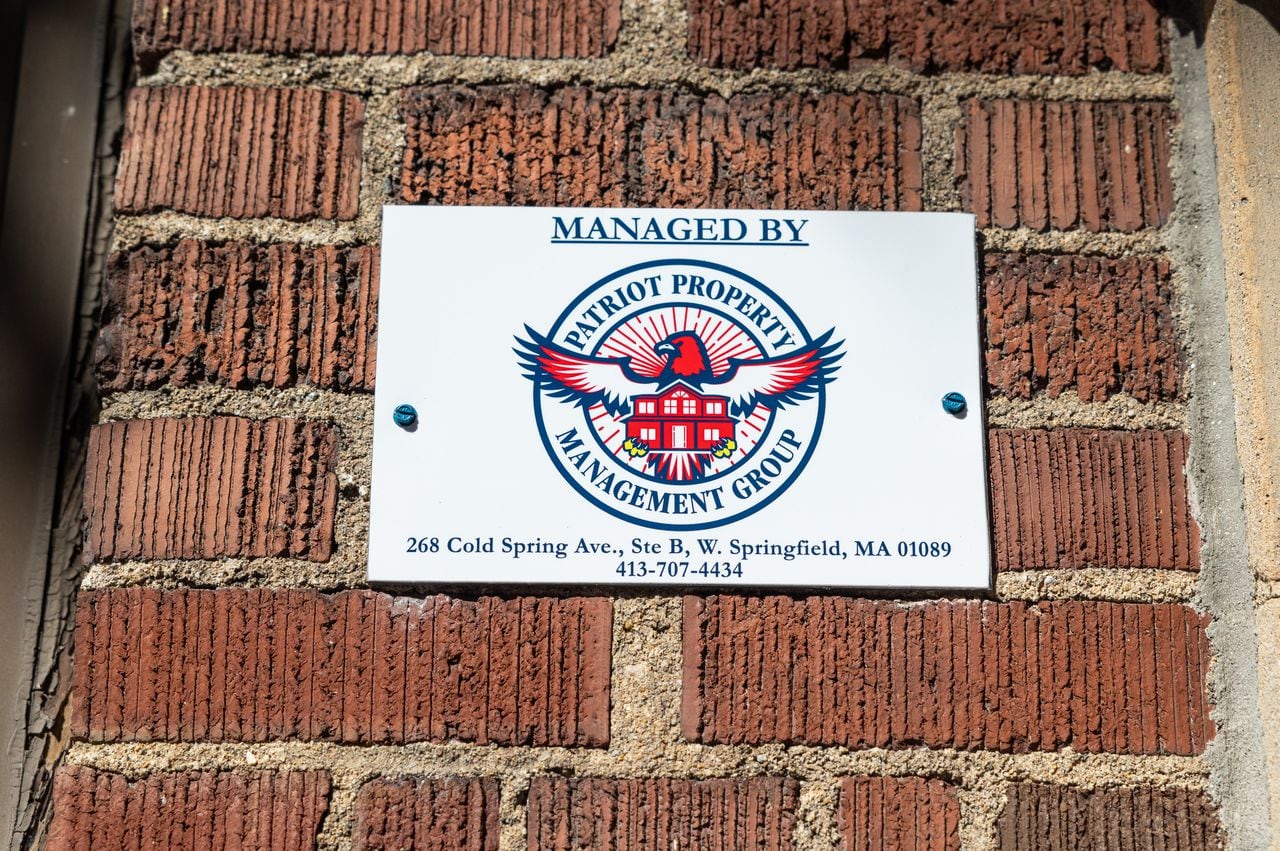SPRINGFIELD — Several renters on Mattoon Street are facing the struggle of finding new homes after their new landlord recently filed no-cause evictions against them in regional Housing Court.
The company — Patriot Property Management Group — sent out notices of the pending evictions of several long-term tenants in late October, shortly after taking over management of the properties. Many of the cases are being heard for the first time in Western Housing Court this month and into early February.
Through one of its subsidiaries, Amat Victoria Curam LLC, Patriot Property filed six “no-cause eviction” cases against tenants, court documents show.
Resident Kelsey Almonte said she had her first hearing on Jan. 2. She’s been a tenant for five years at 20 Mattoon St.
“I’m seeing many familiar faces in court,” Almonte said of her neighbors. “People who are longtime tenants, just like me, (are) getting notices to vacate their apartments for no reason.”
Almonte said many of her neighbors are elderly people. She also said she has been paying her rent on time and has never had problems like this with her landlords in the past.
It is legal in Massachusetts for landlords to evict tenants, even if they haven’t done anything wrong.
The management company did not respond to requests for comment about the eviction letters.

12-20 Mattoon St. apartment complex in Springfield is now managed by Patriot Property Management Group. (Hoang ‘Leon’ Nguyen / The Republican, File)
Gordon P. Shaw, an adjunct law professor at Western New England University and a housing attorney at Community Legal Aid in Springfield, told The Republican that first Housing Court hearings are set aside for mediation, ”where a court-appointed mediator, the landlord’s lawyer and the tenant attempt to settle the case.”
Almonte has two children, one of whom has special needs, and lives in a studio apartment. During mediation, Almonte agreed to move out of her apartment by June 30 of this year, according to court documents obtained by The Republican.
“My daughter needs until at least the end of the school year before I disrupt her sense of normalcy,” she said. “It’s a lot to look for an apartment in this economy. I’ve been saving up to move out as I continue to pay my rent.”
Springfield Gardens, cited by the city as an absentee landlord with a history of substandard properties, previously owned Almonte’s apartment building.
“Springfield Gardens wasn’t great — they didn’t respond to management requests or make any effort to improve the life of tenants — but, they weren’t trying to wipe out tenants,” she said. “It just seems like (Patriot Property) has no concern or remorse.”
Patriot Property Management Group, which is run by two West Springfield real estate agents, purchased 12-20 and 66 Mattoon St., as well as apartments on Federal and Belmont streets in a sale in August last year. The company bought seven more Springfield Gardens buildings in late October.
At the time of Patriot Property’s first purchase from Springfield Gardens, a spokesperson for the buyer said improvements would be made to the buildings on Mattoon, Belmont and Federal streets; however, tenants said that no improvements have been made, and building conditions still remain poor.
Another 20 Mattoon St. tenant, Kenneth Lafland, said he has lived in his apartment for three years. The Springfield human services organization, the Center for Human Development, helped him get his apartment and continues to help with his rent, which is split with another tenant.
The pair’s first hearing was scheduled for Jan. 3 but was pushed to later this month.
“I work part time, and I’m still waiting for a disability check to come in,” he said. “I can’t afford to move out right now.”
Lafland said he never received any previous letters from Patriot Property about rent increases — or anything that would indicate the company would want him to leave his apartment.
“They’ve just been bullies,” he said. “If I’m evicted, it’ll be on my record.”
Despite the upheaval they can cause, Shaw said the no-cause evictions are “a common law practice.”
“Not just for Massachusetts, but for some neighboring states, as well,” said Shaw.
While tenants have the right to make a counterclaim, especially if the landlord has “failed to maintain the property to the state’s sanitary standards,” they are only able to use housing code violations that date back to when the landlord took ownership of the property, Shaw said.
“So, in this case, since Patriot Property only took over ownership in late fall, tenants would likely not be able to use that counterclaim,” he said.
Many tenants who face their landlords in Housing Court go without representation, and unlike criminal cases, there is “no right to counsel in eviction cases,” he said.
Once a tenant has been served with an eviction, called a notice to quit letter, they will be given a date for their first mediation hearing.
Three days before their mediation, tenants must provide their legal answer to the eviction, Shaw said.
“In many cases, at (the first hearing), the mediator will get a tenant and landlord to settle on a decision for when the tenant will move out,” Shaw said. “In the chance they don’t settle, they await trial before a judge.”





